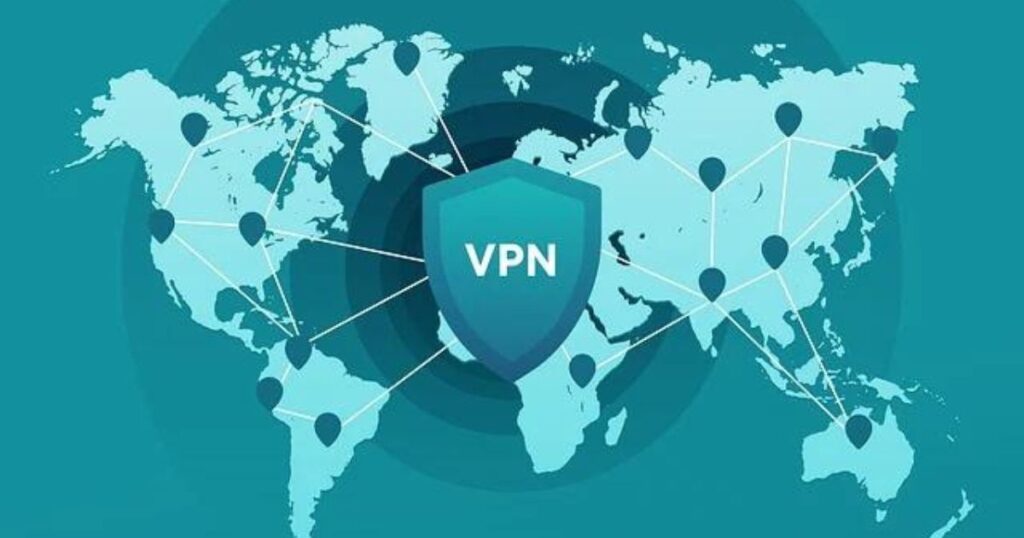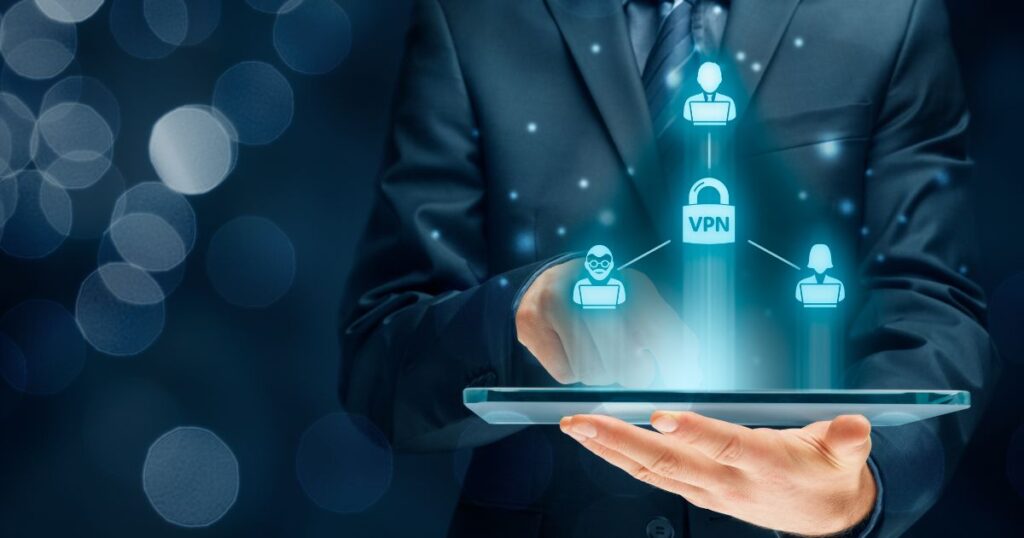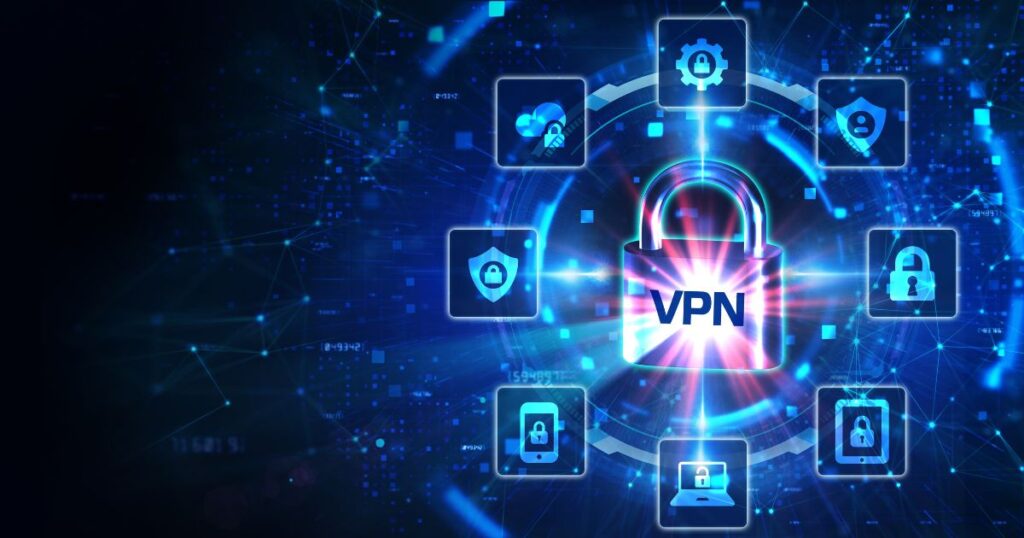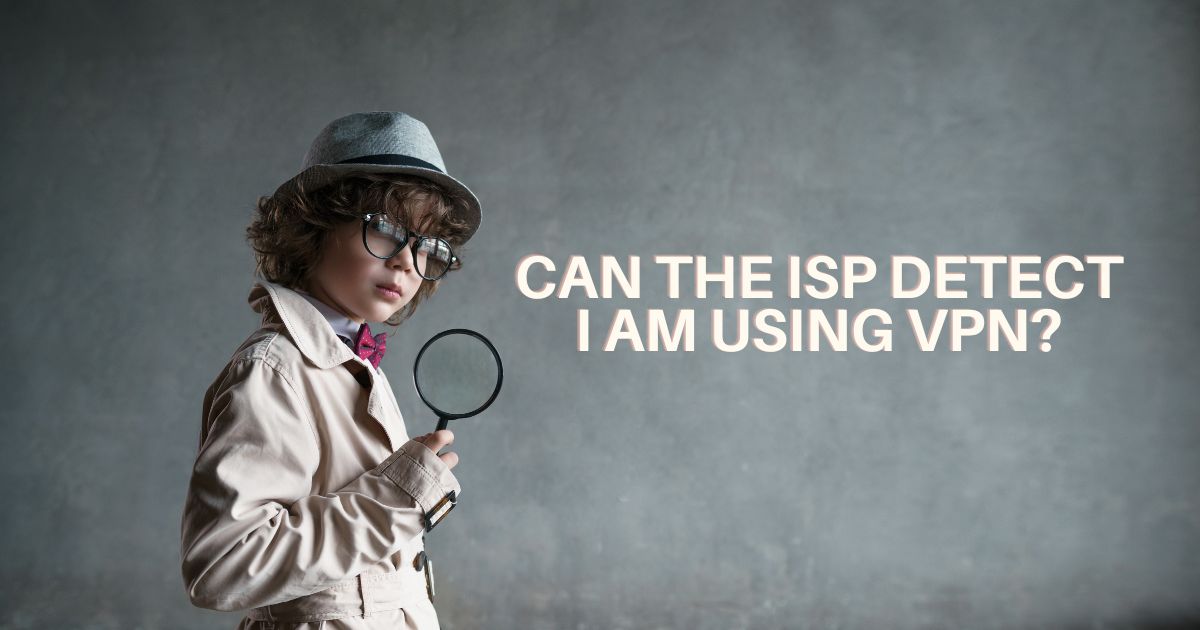Can the ISP detect I am using VPN?- Do your mind ever filled with this doubt? VPNs offer a secure and encrypted connection that can protect your data and identity from prying eyes. However, a common concern among VPN users is whether their internet service provider (ISP) can detect their VPN usage. In this article, we will explore the intricacies of VPNs, how ISPs monitor internet traffic, and whether they can see that you are using a VPN. But firstly let’s find out what is ISP and
With increasing threats to online privacy, individuals and businesses alike are seeking ways to protect their sensitive information. VPNs have gained popularity as a reliable solution for ensuring privacy and security while browsing the internet. But before we delve into whether ISPs can detect VPN usage, let’s first understand what a VPN is.

Understanding VPN
What Is A VPN?
A VPN, or virtual private network, creates a secure connection between your device and the internet. It acts as a middleman, encrypting your internet traffic and routing it through a remote server operated by the VPN provider. This encryption ensures that your data remains confidential and protected from potential eavesdroppers. But only a reliable VPN like NordVPN can provide full safety.
How Does A VPN work?
When you connect to a VPN server, all of your internet traffic is encrypted and travels through an encrypted tunnel. This tunnel prevents anyone, including your ISP, from seeing the contents of your online activities. It also masks your IP address, making it appear as if you are accessing the internet from a different location.
How ISPs Monitor Internet Traffic
What is ISP? ISP stands for Internet Service Providers. ISPs have the ability to monitor their users’ internet traffic for various purposes. They can analyze the websites you visit, the data you download or upload, and even track your browsing habits. This monitoring is often carried out to optimize network performance, comply with legal requirements, or deliver targeted advertising. But can ISPs detect VPN usage?
Can ISPs Detect VPN Usage?
In most cases, ISPs can detect that you are using a VPN, but they cannot see the content of your encrypted traffic. They can identify the presence of a VPN by monitoring network traffic patterns and recognizing the characteristic behavior of VPN protocols. However, due to the encryption employed by VPNs, ISPs are unable to decipher the actual data being transmitted.

For related blo
The Role Of Encryption
Encryption plays a vital role in maintaining the privacy and security of VPN users. The data sent through a VPN is encrypted, meaning it is encoded in a way that makes it unreadable without the appropriate decryption key. This encryption ensures that even if Internet Service Providers can detect the presence of a VPN, they cannot decipher the contents of the encrypted traffic.
Benefits Of Using A VPN
There are several benefits to using a VPN beyond just hiding your online activities from your ISP. Let’s explore some of these advantages:
Enhanced Online Privacy
By using a VPN, you can prevent your ISP from tracking and monitoring your online activities. This enhanced privacy is particularly important when accessing sensitive information or using public Wi-Fi networks.
Accessing Restricted Content
VPNs also allow you to bypass geographical restrictions and access content that may be blocked in your location. By connecting to a VPN server in a different country, you can appear as if you are browsing from that location and gain access to region-restricted websites and services. For instance, try NordVPN free trails.
Protection from Hackers
Using a VPN adds an extra layer of security, making it harder for hackers and cybercriminals to intercept your data. The encryption provided by VPNs ensures that your personal information and sensitive data remain safe from unauthorized access.
Choosing A Reliable VPN Service
When selecting a VPN service, it is crucial to choose a reputable provider that offers robust encryption, a wide range of server locations, and a strict no-logs policy. Popular VPN services like NordVPN provide these features and have been trusted by millions of users worldwide.
Conclusion “Can The ISP Detect I am using VPN?”
In conclusion, while ISPs can detect the use of VPNs like NordVPN, they are unable to see the encrypted content of your internet traffic. VPNs provide a secure and private browsing experience, shielding your data from ISPs and other potential eavesdroppers. With the increasing need for online privacy and security, using a VPN has become an essential tool for many internet users.
For more trending blogs visit VPNsreviewed

Frequently Asked Questions
Q1: Is using a VPN legal?
Using a VPN is legal in most countries, but it’s essential to check the regulations in your specific location.
Q2: Can VPNs slow down my internet speed?
VPNs may slightly reduce your internet speed due to the encryption and routing processes. However, a reliable VPN service will minimize any noticeable impact on your browsing experience.
Q3: Can I use a VPN on my mobile devices?
Yes, VPNs are compatible with most mobile devices, including smartphones and tablets. There are dedicated VPN apps available for iOS and Android platforms.
Q4: Can a VPN protect me from malware?
While VPNs primarily focus on encrypting your internet traffic and maintaining your privacy, they can also provide some protection against malware by blocking malicious websites and preventing unauthorized access.
Q5: Are free VPNs as effective as paid ones?
Free VPNs may offer limited features and potentially compromise your privacy by selling your data or displaying intrusive ads. Paid VPNs generally provide better security, faster speeds, and more reliable services.
Read more relatable blogs on VPNsreviewed



